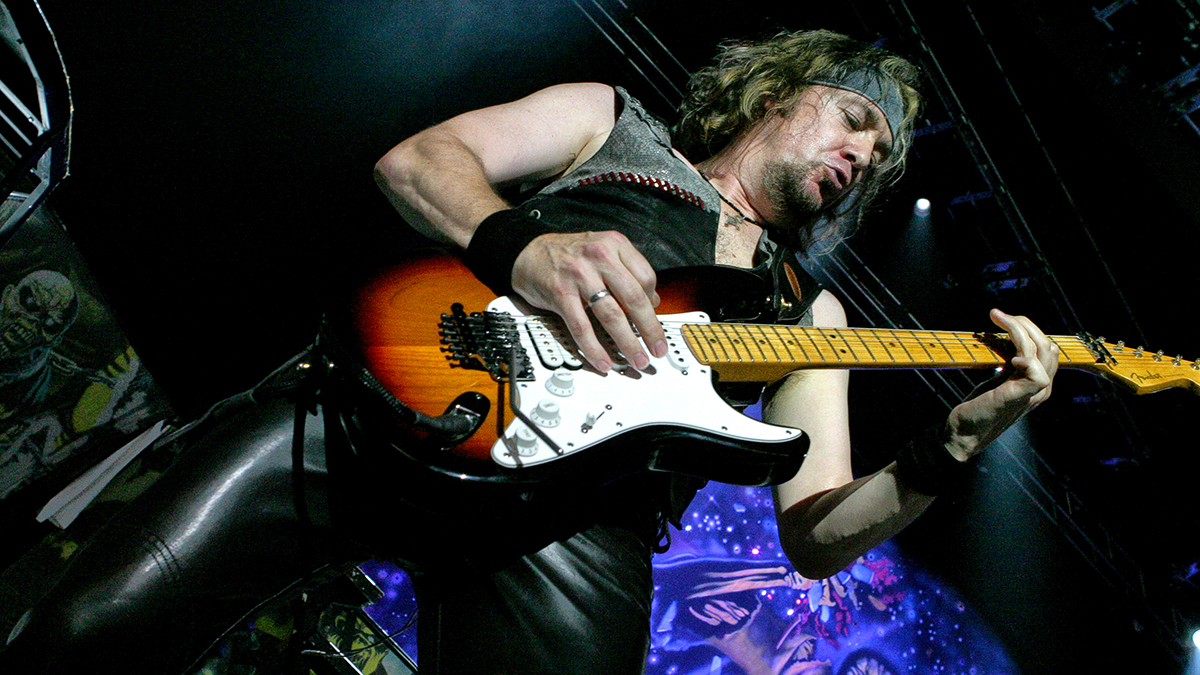“It would've been almost two hours to get home in traffic. I said to myself, ‘You’re here. Just write a song.’ Within 30 minutes, Pumped Up Kicks revealed itself to me”: How a ’59 Jazzmaster and capture-the-moment attitude keep Foster the People in gear
On their new album, Paradise State of Mind, Mark Foster and co. indulge in Chic-style rhythms over classic funk bass, disco strings, Kraftwerkian synths, and pure joy

Mark Foster of Foster the People knows there’s a limit to chasing musical perfection. “It was really important in the recording process not to overcook anything,” he says about their latest album, Paradise State of Mind.
“For the last 15 years, technology has gotten us to a place where we can make music perfect. Everybody is obsessed with quantizing the drums and making everything line up perfectly. But I found myself listening to music from the Sixties, Seventies, and Eighties over and over again. We tried to use some of the techniques they were using back then… to not fix things, but to let things swing.”
The album not only swings; it alternately croons, shuffles, and grooves atop a foundation of classic funk bass, disco strings, and swooping Kraftwerkian synths.
Foster and his colleagues have melded the danceable, Chic-like sounds of tracks like Lost in Space with lyrical explorations of societal hypocrisy and spiritual and personal rebirth to playfully conjure an LP that feels old and new at the same time.
“As a response to the darkness that is kind of in the air right now, I needed to make something that felt joyful while not making something that felt escapist,” he says. “This style of music felt like the perfect vehicle to be able to express some things lyrically without it being depressing. I like to have an intention when going in to make a record, but when I’m actually writing it, it’s coming from a place of improv.
Having the late Seventies as a starting point just felt fun. When I listen to that music, like the Gap Band, where it’s live drums, you hear the funk
“That’s how I approach lyrics, too,” he says. “I’ll turn on a mic once I have a bed of music, and I’ll just start singing. Sounds start to come out that form into words and sometimes full phrases, and it’s this process that allows the subconscious to come out. There’s a spiritual nature to it, too, that starts to feel like channeling. It feels almost like pulling the string of a sweater, and I’ll start to unravel it and follow the string until the flow state kind of stops.”
If you think that sounds too cerebral for a pop album, the music is guaranteed to get the hips and feet moving.
All the latest guitar news, interviews, lessons, reviews, deals and more, direct to your inbox!
“I’d say it’s the most rhythmic record we’ve made,” he says. “Having the late Seventies as a starting point just felt fun. When I listen to that music, like the Gap Band, where it’s live drums, you hear the funk. You can hear the cross-referencing bringing in some Motown, some soul.”
But Foster also was inspired by the innovation of those funk pioneers. “There were synths that were being invented each year. Like Parliament-Funkadelic’s Bernie Worrell. He was approaching it brand new, completely fresh, and pulling in all the history of the music he grew up listening to, but then doing it for the first time in this new way.”
Foster’s a methodical craftsman, but he knows how hard it is to capture musical lighting in a bottle.
“I had sketches going into the studio, but the songs were finished there, which is something I really like to do,” he says. “I’ve learned the hard way when you try to chase a demo that wasn’t recorded properly, but the spirit’s there. Now I try to finish it while I’m recording it properly so you capture the spark.”
That approach worked on one of the record’s stand-out tracks.
“For instance, Take Me Back – that song didn’t have a bridge at all. It was just, ‘Oh, we need to do something here.’ So Isom [Innis] got on the drum kit. I got on guitar and bass, and we just sorted that out right there and then.”
In the past, Foster was often pictured with a Gibson ES-335, but lately, he’s favored a different instrument.
“For the last few years, I’ve been playing my favorite guitar I’ve ever owned. It’s a ’59 Jazzmaster that I found on our last tour at Chicago Music Exchange,” he says. “Sometimes you pick up an instrument, and there’s just an energy in it; it’s just such old wood. I know there are so many songs inside of this thing that are waiting to be unlocked. And it’s got just enough bite that it cuts through.”
When it came to recording guitar parts, Foster and former bandmate Sean Cimino, who contributed to the album, used different techniques to color the sound.
“Sean would go through his pedalboard into a Matchless and really drive the amp and get the room reflections off the back wall,” he says. “A lot of the rhythmic stuff that I played on this record, I would go direct into the board to get this really dry kind of rhythmic feeling that almost lives frequency-wise like a tambourine.
“Typically, what I like to do live is to use the amp itself. I like to have the least amount of resistance with circuitry, and I really love to drive an amp and get that pure sound that breaks up the right way.”
Foster’s ability to get into what he calls a “flow state” served him well while writing 2011’s Pumped Up Kicks, the band’s biggest hit to date. He was working at his job crafting music for commercials and was ready to knock off for the day, but he says, “In L.A., it would have taken me almost two hours to get home in traffic. So I said to myself, ‘You know what? You’re here. Just write a song.’”
Foster laid down a drumbeat, picked up a guitar, “and within 30 minutes, this song is revealing itself to me. And I ended up staying for six hours getting the bulk of the song finished, and that’s what you hear today. I was the opposite of inspired. I was burned out and wanted to go home, but because I stayed and wrote something without any pressure, a song came out that changed the course of my life.”
- Paradise State of Mind is out now via Atlantic.
Bruce is a freelance writer of features and interviews for Guitar World and MAGNET Magazine among other titles. He's played guitar in numerous garage bands with much better musicians who sometimes laugh at his Ovation Breadwinner.

![Foster The People - Lost In Space [Official Video] - YouTube](https://img.youtube.com/vi/8UsXq64gl58/maxresdefault.jpg)


